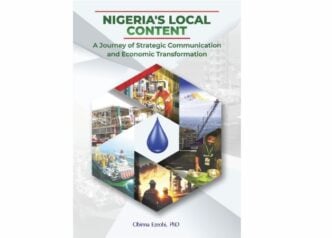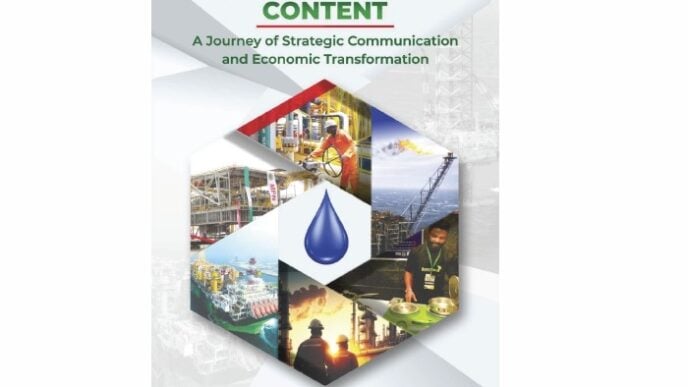BY BEULAH ADEOYE
When most people think of industrialisation, they envision sprawling factories, skyscrapers, and high-tech infrastructure. What many fail to see is that culture and tourism can be the unsung heroes of industrial progress. Yes, you heard that right.
As Oyo state pushes forward on its journey to become an industrial hub, leveraging its rich cultural heritage and tourism potential could be the secret sauce that propels us ahead of the competition. Just look at Singapore and Rwanda, two countries that have seamlessly integrated culture and tourism into their economic growth models.
Oyo state is blessed with an immense cultural heritage that spans centuries. From the ancient city of Ibadan, which houses one of Africa’s most important historical sites, to the royal palaces of Oyo town, where the Alaafin reigns, the state is steeped in tradition. But there’s more – the cultural significance of Oyo is not just about the past; it’s also about the present and future.
Advertisement
Let’s take a page out of Singapore’s playbook. Singapore may be known for its cutting-edge industrialisation and ultra-modern infrastructure, but it also has a deep cultural heritage that is woven into the fabric of the city-state. The combination of a robust industrial base and a thriving tourism industry has made Singapore a global icon. Tourism in Singapore isn’t just about leisure – it’s an integral part of its economy. It brings in millions of dollars and employs thousands, all while reinforcing national pride and cultural identity.
Likewise, Oyo state can utilise its cultural wealth to drive industrialisation. The Alaroye Festival, the Oke-Ogun Annual Arts Festival, the twins festival in Ibarapa, and even traditional crafts like Aso-Oke (the Iseyin traditional fabric), black soap making, and pottery, all hold the potential to attract global attention. These cultural assets, when combined with industrial development, can boost the state’s GDP, create jobs, and position Oyo as an attractive destination for both business and leisure.
Tourism is one of the most powerful economic engines in the world today. In 2019, the global tourism industry generated nearly $9 trillion, contributing to 10.4% of global GDP. Oyo state, with its rich culture and diverse heritage, is in a prime position to harness tourism as an engine for industrial growth.
Advertisement
But here’s the twist: we can’t just sell Oyo as a “tourist destination.” That’s the old way of thinking. What Oyo needs is a tourism-industrialisation strategy – one that integrates cultural tourism with industrial development. For instance, instead of just promoting Ibadan’s famous University of Ibadan or the Ikere Gorge Dam as tourist destinations, we can build on these sites by establishing tech parks, innovation hubs, and green energy zones nearby. Tourists can come for the culture, but they will stay for the industries.
Imagine this: The Ikere Gorge Dam is not just a beautiful site but also an area where green energy plants power the surrounding industries. The famous University of Ibadan, Nigeria’s first university, could evolve into an innovation centre that partners with international corporations to push research and development in agriculture, technology, and healthcare. In fact, why not turn the Alaafin’s Palace in Oyo into a cultural and business hub? This could be the epicentre of a thriving tourism and hospitality sector that attracts international tourists and investors alike, thereby supporting the state’s industrial drive.
By blending heritage with innovation, Oyo could create a tourism-boosted industrial hub where industries benefit from increased consumer spending by tourists, and tourism flourishes thanks to the rising economic prosperity brought about by industrialisation.
The Aso-Oke making tradition in Oyo, the black soap industry, and pottery production are not just cultural practices – they are potential global markets waiting to be unlocked. Countries like Morocco and India have turned traditional crafts into booming global industries, and Oyo can do the same. Take black soap, for example. The pioneering work of Mr. Edmund Obilo in documenting this “Ose Dudu” gift of Ipapo to the world could spur the demand for organic skincare products, which is soaring worldwide, and Ipapo black soap, known for its quality, could easily become a leading product on the international market.
Advertisement
But how do we transition these products from artisanal to industrial? The answer lies in modernising production methods, packaging, branding, and marketing. Oyo should create a Center for Artisan Development, where local artisans can learn to scale their production, meet global standards, and tap into international distribution networks.
Similarly, Aso-Oke, the traditional fabric worn by the people of Oyo, can be modernised and marketed to the global fashion industry. With the right infrastructure and collaboration with international designers, Oyo’s traditional textile industry could rival those of other global fashion hubs.
Singapore’s success isn’t only about making itself an industrial hub. It has also mastered the art of creating an experience. The Marina Bay Sands, Gardens by the Bay, and Chinatown attract millions of visitors who come for the culture but also spend money on shopping, dining, and entertainment. Oyo can adopt a similar approach. Picture this: You come to Oyo for the annual Twins Festival in Ibarapa, then enjoy a stay in Ibadan’s top-tier hotels like Mahogany in Jericho Ibadan, or Kunle Afolayan Film Village (KAF Village) in Igbojaye in Itesiwaju Local Government, the Ilaji Hotels and Sports Resort or the Beulah House Lodge powered by alternative energy sources, which serve as like pilot power hubs, and end your trip by investing in a tech startup at an innovation park in Oke-Ogun. This is the Oyo state of tomorrow – where tourism, culture, and industrialisation come together to create a vibrant and sustainable economy. This must also be viewed alongside the potentials of places like the Iyake Lake, Eleyele water front or Bowers Towers.
To realise this vision, Oyo must focus on creating modern infrastructure that supports both tourism and industrialisation. Roads, airports, hotels, public transport, and internet connectivity must all be enhanced to accommodate the influx of tourists and industries. Investment in smart cities with integrated digital platforms will ensure that tourists and entrepreneurs alike have access to real-time information, convenient services, and cutting-edge facilities.
Advertisement
The Ibadan International Airport which is being expanded to cater for more international flights, making it easier for tourists and businesspeople to come to Oyo is a great step in this direction. In addition, green tourism zones can be established to attract eco-conscious tourists and investors in renewable energy, tapping into the growing trend of sustainable tourism.
As Oyo embarks on this journey of industrialisation, we must remember that culture and tourism are not just nice-to-haves. They are integral to the state’s future. The cultural and tourism sectors provide an opportunity for Oyo to differentiate itself from other states, create jobs, and bring in foreign exchange. Moreover, by combining culture with industry, Oyo can create a self-sustaining ecosystem where tourism fuels industrial growth, and industrial growth enhances tourism.
Advertisement
The Oyo of tomorrow is one where visitors come to experience culture, but leave with investments, partnerships, and a desire to be part of something bigger. It’s a state where industries thrive, but they do so with respect for tradition, heritage, and the environment.
Over the past six years, His Excellency Governor Seyi Makinde has revitalised the state’s cultural scene through iconic festivals like the World Egungun, Sango, and Yemoja festivals. His leadership has positioned these events as global celebrations of Yoruba heritage, attracting international attention and fostering cultural pride.
Advertisement
Through strategic partnerships and visionary programming led by my dear elder brother Dr. Wasiu Olatunbosun, the commissioner for culture, Oyo state has expanded traditional celebrations such as Isese Day celebrated interestingly each year on August 20, which happens to be my birthday and is accordingly doubly special. Notably, the UNESCO in December 2023 inscribed the Sango Oyo Festival on its Representative List of the Intangible Cultural Heritage of Humanity. This recognition underscores the festival’s significance in Yoruba culture and its role in fostering cultural diversity and understanding. How about the traditional and cultural preparations for the several coronations and cultural events over the last few years from Oyo to Ogbomoso to Iseyin to Ibarapa.
These initiatives not only preserve Yoruba traditions but also promote tourism, generate revenue, and engage the youth, affirming Oyo state’s place as a cultural beacon in Nigeria and beyond.
Advertisement
As we move towards this vision of an industrialised Oyo, here’s what you can do today to make it happen:
– Promote your culture: Share the rich history of Oyo with the world. Host cultural events, share stories, and engage with the global community.
– Support local artisans: Buy locally-made products and support small businesses. Encourage innovation while respecting tradition.
– Advocate for infrastructure improvements: Demand better roads, airports, and connectivity to support both tourism and industrial growth.
– Invest in tourism and culture: Start tourism-related businesses, such as hotels, tour guides, and entertainment services, to cater to incoming visitors.
The time is now to turn Oyo into an industrial, cultural, and tourism powerhouse. The road ahead is long, but together, we can make it happen.
Stay tuned for more in this series as we continue to explore how Oyo state can unlock its potential for a sustainable industrial future.
Views expressed by contributors are strictly personal and not of TheCable.










